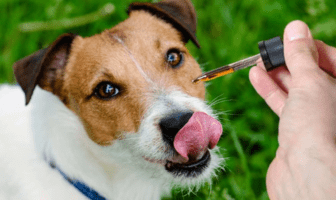
Becoming an advocate is a significant move that any individual can take. Advocating for pets is prominent as you get to represent those who cannot speak using words. Defending your dog entails promoting and supporting its interest. It is about ensuring that you put the well being of your beloved pet first. It is catering to the pet’s physical and emotional needs. Your dogs need protection from any injuries, from people who would harm them, or other dangerous pets. Advocating is right for you as it helps to build the trust between you and your favorite pet. One way of promoting is through learning about animal laws. There are various elements that you need to understand to advocate effectively for your animal.
1. Know the animal Laws:
The initial step in active advocacy is knowing animal rights. There are various animal laws in Brisbane. Finding out the rules governing your particular pet helps in guiding you take care of them. The step prevents you from becoming the person who may harm the pet unknowingly. It also helps you to support your pets’ rights in public places. Find the regulation regarding taking care of your specific pet, the registration requirements, and any permits you may need. It is good to stay informed so that you are in a clear position to treat your pet right according to the law. The fundamental thing is to know how to report a breach to the authorities in case someone mistreats your dogs or infringes their rights.
2. Know Your Pets Body Language:
Understanding your dog is the most fundamental thing that you ought to know. Knowing your pet will help you to represent them well and protect their rights. Learn about their body language in different circumstances. Understand how they communicate various things such as anger, anxiety, worry, hunger, conflict, and happiness. After that, it will become easy for you to know when your dog is unwell and campaign for their rights.
3. Situation awareness:
It is one thing to understand and know your dog or cat; it is another to know when something is up. Knowing your dog is only useful if the information will help you in keeping track of its lifestyle. Watch out for any signs for instance that makes your pet uncomfortable, hungry, or tired. Sometimes it is difficult for new pet owners to remember to check on their dogs. It is, however, essential to do so.
Sometimes you can get carried away with talking to your friends and forget to find out if the dog is as comfortable as you are. Train yourself to study your animal in all circumstances so that you can become their advocate. Become situational aware everywhere including at home, parties, outdoors, and even at your friend’s place when you visit with your dog.
4. Advocate for your pet at home first:
The first place you need to advocate for your dog is at home. Sometimes we may think that dogs are only in danger outside our houses. It is possible for dogs to become uncomfortable and feel unsafe in their own homes. Start by speaking politely to your dog or cat. Make sure that everyone in the household speaks gently to the dog too.
Whenever you have visitors, make sure you know whether they love pets. In the cases where the visitors do not like pets, make sure your pet is not anywhere near them. Find out if your pet loves to socialize with other pets. The information will help you protect them from being in situations where they are uncomfortable. It is good to leave your pet at home when visiting friends if the pet is not used to new environments or new people.
While having more than two pets around the house, it is critical to ensure that they get along well. Having two animals around the house that do not get along may create chaos and endanger the lives of one of the pets. Teach everyone in the household to respect and treat the animals with respect. Sometimes another individual in the home apart from you may hurt the animal.
5. Advocating at Public places and Gatherings:
It is probable that at some point you may need to attend public gatherings with your dog. Caring for the dogs while they are away from home is critical. You will need to give them the full attention they need and be observant to know their behavioral changes. It is against animal law in Brisbane to neglect your pet and leave it unattended in gatherings. In Brisbane, the violation is punishable by law.
Public places possess new environments, sights, sounds, new people, and new pets. It is likely that your dog may become frightened at first. Training your dog prior will help them adjust and adapt well to new environments. Make sure you carry enough food for the dog just in case there won’t be enough food at the public gathering.
When you notice that your dog is showing signs of anxiety, take your pet home. Advocating is about putting the interest of the dog before your own. No matter how bad you wanted to attend the party, take time off and take them home. It is also good to leave the dog at home if they don’t like new environments.
6. Use Your Voice To Articulate Your Dog’s Interest:
Dogs cannot speak in a way that people understand. However, you know your dog well enough. Becoming your pet’s activist’s entails speaking up and protecting your pet. Not everyone knows how to treat your pet right, communicating with the dog is fundamental.
Sometimes other people such as the veteran may unknowingly mishandle your cat. It is good to communicate to them on how best to handle your cat. Watch your cat and see if they show any signs of anxiety or stress. When they do, take corrective action as fast as possible to protect their rights.
Report any cases where someone violates your dog rights. There are various procedures which you can use in Brisbane to report any cases of violation.
Read Also:





























